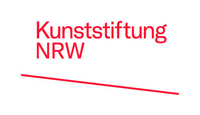
History
THE IDEA
In the seventies it was just a pipe dream for German-speaking translators of literary and academic works. What would it be like, wondered these ‘book translators’, who worked alone at their desks, year in, year out, if we could come together and work alongside each other on ad hoc basis?
Not necessarily as teamwork, but first and foremost to exchange experiences. Experiences of one’s own mother tongue and of foreign languages, the tricks of the translator's trade: what you can look up or find out where, what about the many ‘new’ words and expressions in all languages for which you need to find equivalents of similar topicality.
THE HISTORICAL MODEL
There had been an example of the effectiveness of such a cooperation in the Middle Ages in Toledo, Spain. Back then entire teams of linguists assembled to translate the Greek classics, which had only survived in Arabic, into Latin.
Even though they worked in small groups on different books, the fact that they were able to share their individual realisations made their work easier, and knowing what their colleagues were doing meant they achieved a consistently high standard. That was the historical model.
FOUNDATION
On 10 January 1978, the ‘Europäisches Übersetzer-Kollegium Nordrhein-Westfalen in Straelen e.V.’ was founded on the initiative of Straelen-born Beckett translator Elmar Tophoven and the then chairman of the Association of Literary Translators, Klaus Birkenhauer.
In August 1980, a provisional house was set up in Mühlenstraße in Straelen that had six rooms and an ever-growing library. In 1985, the EÜK moved to its current premises in Kuhstraße 15-17, which consisted of five former residential buildings. In May 1992, this building was extended by a neighbouring sixth house, where mainly seminars and training events take place.




